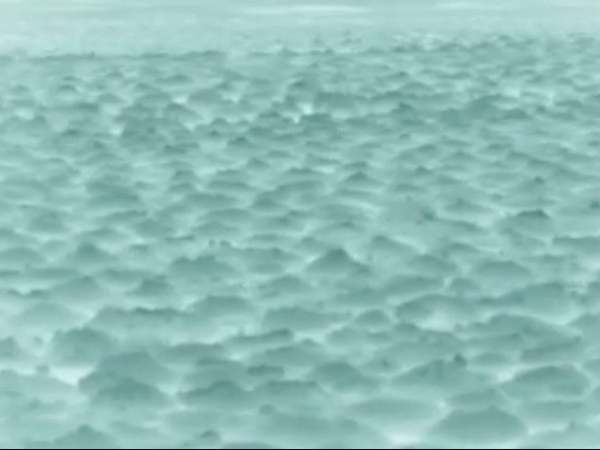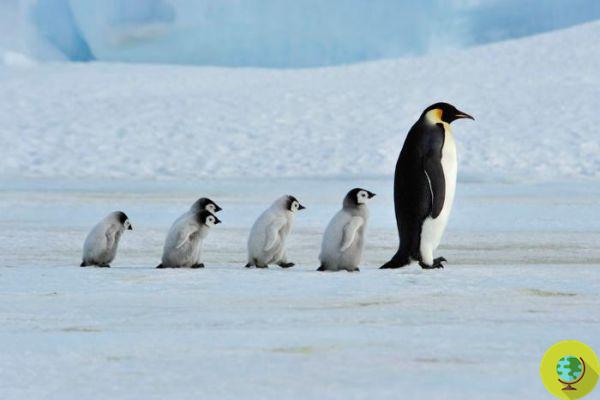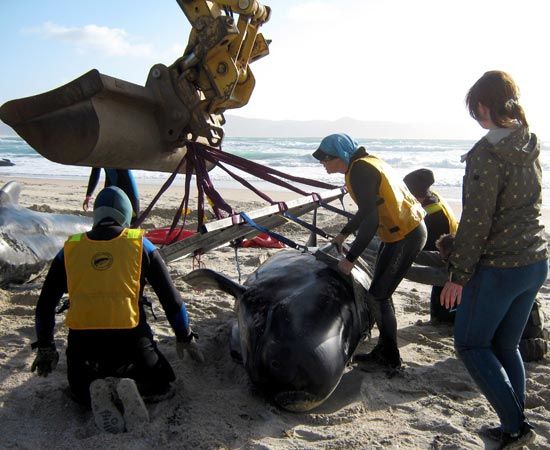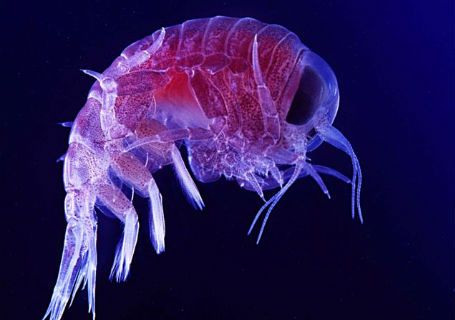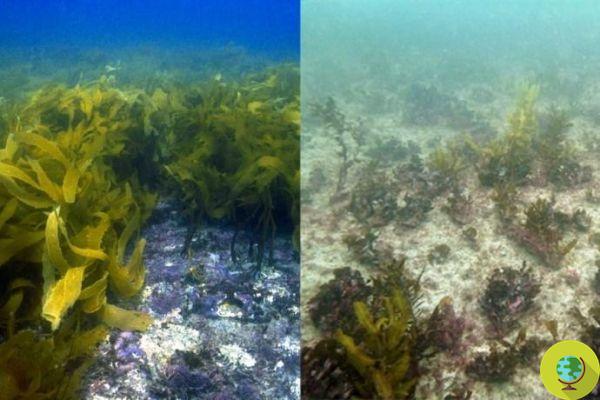
Heat waves that hit the sea threaten global biodiversity like forest fires. A threat perhaps less obvious but no less dangerous
Heat waves that hit the sea threaten global biodiversity like forest fires. A threat perhaps less obvious but no less dangerous.
This is revealed by new research conducted by the British Marine Biological Association, according to which marine heat waves destroy ocean ecosystems like forest fires destroy forests.
This is the first study that systematically observes marine heat waves - the periods in which ocean temperatures rise for five days or more.
Scientists explain that extreme weather events are occurring in the oceans and atmosphere. Marine heatwaves are increasing in frequency, with 54% more per year in the period from 1987-2016, compared to that from 1925 to 1954. Yet their impact on species and ecosystems has so far been little studied.
The new research is the first to quantify and counter the magnitude and impact of several major marine heatwaves, showing that they have adverse effects on a wide range of organisms, with important socio-economic and political repercussions.
The study, conducted by Dr. Dan Smale of the Marine Biological Association (UK), involved scientists from 7 different countries representing 19 different institutes. It was found that marine heat waves vary in their physical manifestations, but all affect key species and alter the structure and functioning of the ecosystem.
Multiple regions within the Pacific, Atlantic and Indian Oceans are particularly vulnerable to the intensification of these heat waves. Furthermore, there is a rich biodiversity here.
The consequences? According to Dr. Smale, the extreme temperatures experienced during marine heatwaves can have adverse effects on marine organisms, leading to widespread mortality, changes in species range and entire ecosystems and ecological processes.
Ocean ecosystems currently face a number of threats, including overfishing, acidification and plastic-related pollution, but periods of extreme temperatures can cause rapid and profound ecological changes, leading to habitat loss, local extinctions, reduced fishing catches and altered food webs. The main concern is that the oceans have warmed significantly as a result of human-caused climate change, so that marine heatwaves have become more frequent and are likely to intensify in the coming decades. Just as atmospheric heatwaves can destroy crops, forests and animal populations, marine heatwaves can devastate ocean ecosystems, ”he added.
According to the study authors, i climate changes will continue to increase the frequency of marine heatwaves and the associated impacts on marine biology could have far-reaching effects on ecosystems and the services they provide.
The research was published on Nature Climate Change
READ also:
- Here is what would happen to the marine ecosystem with an increase of one degree
- More and more violent tornadoes: the fault of the sea temperature, confirmed by the CNR
Francesca Mancuso
Gallery





